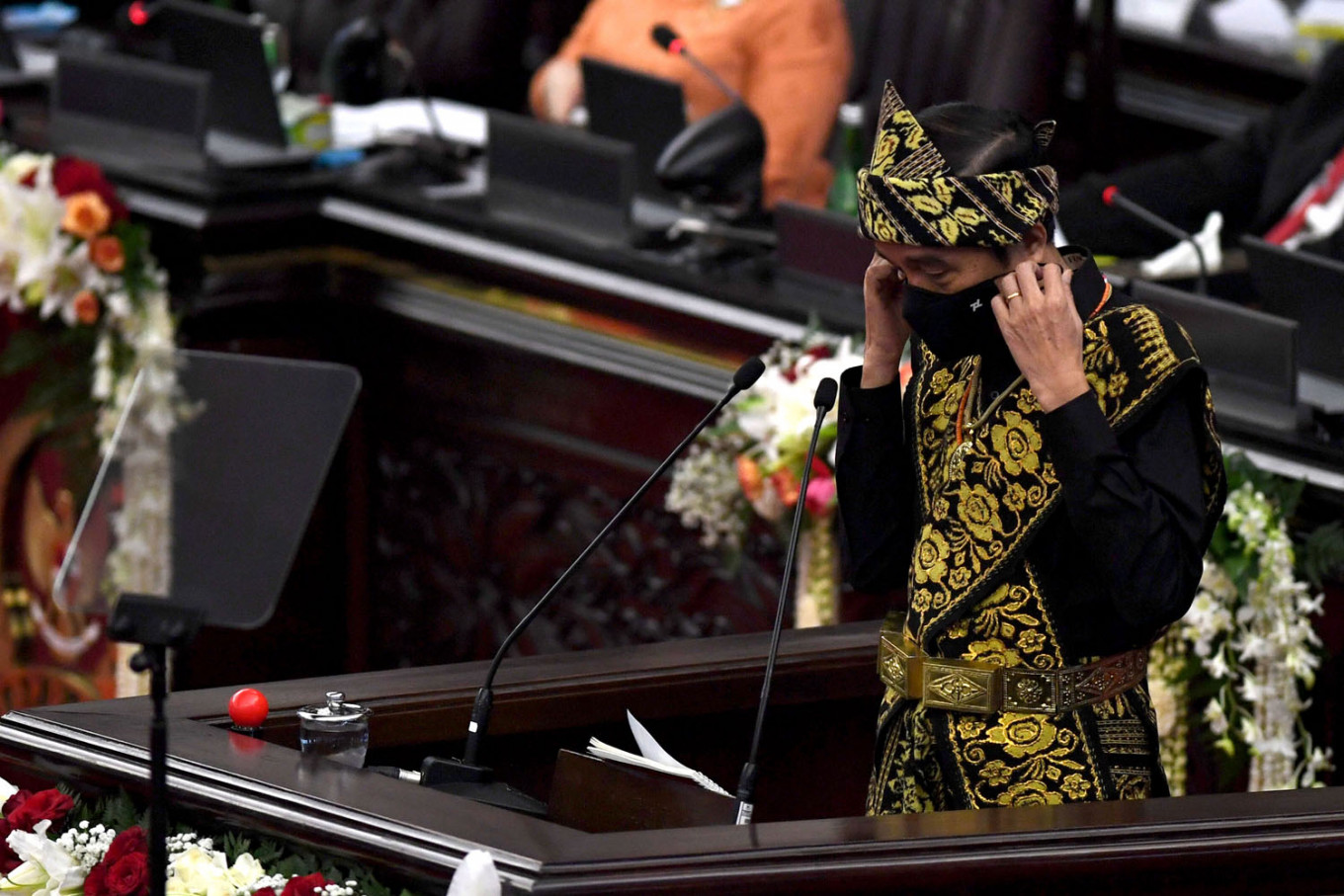Popular Reads
Top Results
Can't find what you're looking for?
View all search resultsPopular Reads
Top Results
Can't find what you're looking for?
View all search resultsJokowi pledges to cut red tape, develop industrial parks across Indonesia
Red tape prevented Indonesia from climbing up the World Bank’s ease of doing business ranking last year, hence why the country has been ranked 73rd since 2018. The President wants the country reach the 40th position this year.
Change text size
Gift Premium Articles
to Anyone
P
resident Joko “Jokowi” Widodo has reiterated his commitment to eliminating overlapping regulations and developing more industrial parks across Indonesia.
“Regulatory reforms must be carried out. Regulations that are overlapping, complicated and misleading [for] those [who] are at risk must be put to an end,” Jokowi said in a televised state of the nation address at the People’s Consultative Assembly on Friday.
Read also: What you need to know about Batang industrial zone development
Red tape prevented Indonesia from climbing up the World Bank’s ease of doing business ranking last year, hence why the country has been ranked 73rd since 2018. The President wants the country reach the 40th position this year.
To achieve the goal, the Jokowi administration has proposed an omnibus bill on job creation to carry out regulatory reform. It seeks to attract investment by revising 79 laws and more than 1,200 articles deemed harmful to Indonesia’s ease of doing business.
In addition to regulatory reform, the government is also developing industrial parks, such as the Batang industrial park in Central Java and one in Majalengka regency, West Java, to solve land acquisition issues usually faced by investors.
The government is planning to develop at least 27 industrial parks, according to the 2020-2024 National Medium-Term Development Plan (RPJMN). Most of them will be developed outside Java Island.
“Similar industrial estates will also be built in various regions all over Indonesia, always taking into account cooperation with community entrepreneurship and micro, small and medium enterprises to provide employment opportunities for the unemployed young generation and boost equitability of development in all corners of the country,” said the President in his speech.
“Consequently, a favorable national ecosystem for the expansion of quality employment opportunity must be established.
Read also: Guide to omnibus bill on job creation: 1,028 pages in 10 minutes
“We dedicate all of this to a fair national economy that caters to the interests of workers and job seekers in order to alleviate poverty by providing the widest possible quality employment opportunities.”
The Indonesian economy contracted 5.32 percent in the second quarter as the COVID-19 pandemic hit demand and disrupted the supply chain. As a result, around 3.7 million individuals have lost their jobs so far this year, according to data from the National Development Planning Agency (Bappenas), with the number expected to hit around 10 million by the end of the year.
The speech came at a time when the government is pushing forward the conclusion of deliberation of the omnibus bill at the House of Representatives amid heavy scrutiny from observers, international institutions and labor unions that say the bill could jeopardize environmental protection and labor rights.










